Inequality
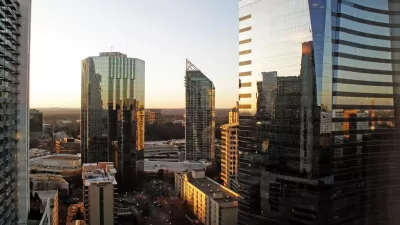
The Nation's Most Equal (and Unequal) Cities
In the United States, urban wealth and poverty are often quite segregated. But they can also be next-door neighbors. This article looks at cities with the highest and lowest levels of income inequality.
'Threading the Needle' of Environmental Sustainability and Social Justice for Cities
This blog is part of the World Resources Report (WRR) series. The WRR looks at cities as drivers of economic and social opportunity, and simultaneously as areas with concentrations of poverty, environmental degradation, and inequality.
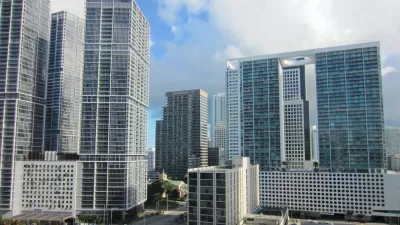
Plenty of Luxury Units to Go Around—While Affordable Housing Gets Less Affordable
The market for luxury apartment rentals is booming; the market for affordable rentals is not.
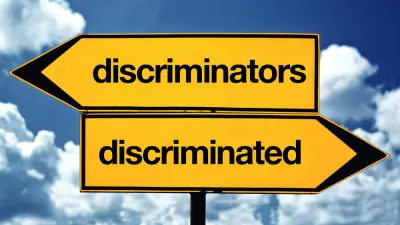
Op-Ed: Why Cities Need the 'Poor Door'
Drawing on a distinction between equality and equity, Rick Jacobus argues that so-called 'poor doors' are a necessary compromise to promote affordable housing and neighborhood integration.
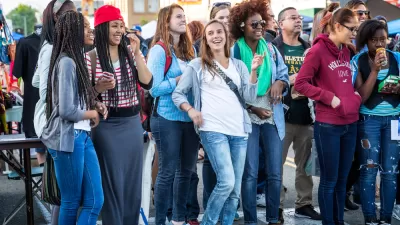
What Is a 'Great' Neighborhood? An Analysis of APA's Top-Rated Places
A study recently published in the Journal of the American Planning Association finds that the APA's definition of "great neighborhoods" might be leaving low-income and minority populations behind.
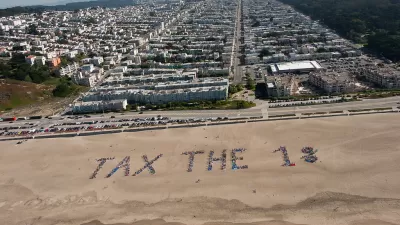
How Falling Inequality Rates Mislead
While the vast majority of cities saw an increase—or no decrease—in neighborhood inequality since 1990, nearly 30 regions became more equal. But paper equality can be problematic when the rich simply up and left town.
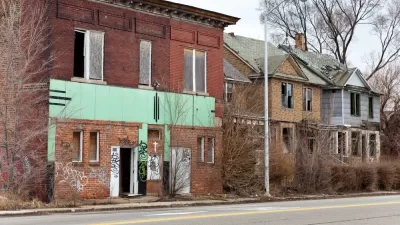
Map Depicts Nationwide Geography of Inequality
An analysis and accompanying interactive map from the Urban Institute show where the nation's richest and poorest tend to live. The map tells a tale of deeply ingrained wealth segregation.
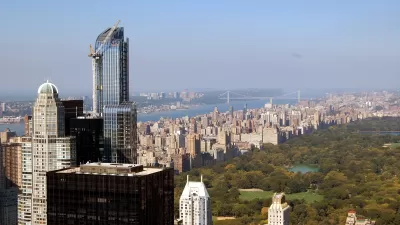
Why New York Barely Taxes Its Billionaires
If taxed at an average rate, the buyer of One57's $100.5 million penthouse should have paid $1.3 million in property taxes. Instead, the property was assessed at $17,000. Here's why.
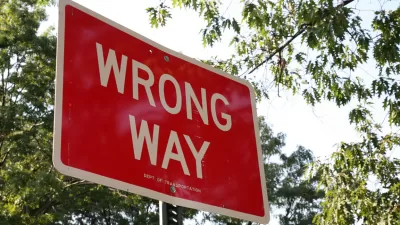
On the U.S. Transportation System's Structures of Inequality
The tendency of transportation planning of the 20th and 21st centuries to negatively impact poor and minority populations received deep attention on national media outlets over the past few days.
Inequality and Informality in New York
For a MoMA exhibition about urban inequality, Brooklyn architects SITU Studios documented informal housing in New York.
'Inequality Happens?' Hopefully Not
Even local officials who prefer to talk about the fiscal rebound of their cities will not be able to accept escalating inequality as a byproduct of urban growth forever.
Say it Loud: Inequality is Bad for Everyone
There is an invisible culprit in the great scandal of inequality in America: your Econ 101 textbook. Go ahead, dig it out from that storage chest, and undoubtedly you’ll read that inequality, while we might not like it, is good for economic growth
Race, Poverty, and Change in America: The Persistent Dilemmas of Equity and Equality
The themes of race, poverty, and change in America are as relevant as ever, as our nation grapples with the recent tragedies in Ferguson, Missouri and Staten Island, New York.
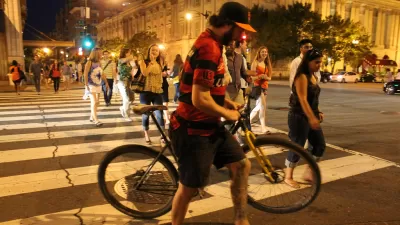
If Millennials Drive Less, it's Not All a Matter of Taste
Bill Fulton writes for CP&DR that while some Millennials may be driving less because they've chosen urban, transit-friendly lifestyles, many more young people are driving less simply because they can't afford to.
Report Details Deep Inequality in the St. Louis Region
Ken Leiser shares the results of survey finding that "Blacks are far more likely than whites to live in poverty, to be unemployed and to drop out of school in the St. Louis region."

Discrimination at Home: Luxury Development with 'Poor Door' Approved in NYC
Extell Development Company made news last summer by proposing a luxury development with a separate entrance for below-market-rate units. Now that the project is fully approved, New York councilmembers might expand anti-discrimination policies.
What's Missed When Taking the Scenic Route?
An app that plots the most beautiful route across cities made news earlier this month, but one commenter worries about how taking the more scenic route could make it harder to improve quality of life in the "less-than-scenic" sections of cities.
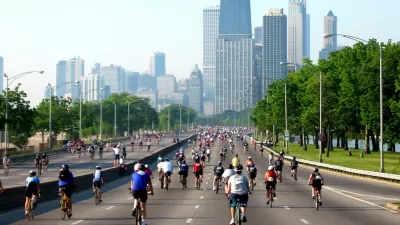
More People are Riding Bikes; After That It Gets Confusing
A pair of articles explores the implications of data released in May by the U.S. Census about the increasing use of bikes among commuters. The articles, however, don't agree about the implications of the data for low income and minority citizens.
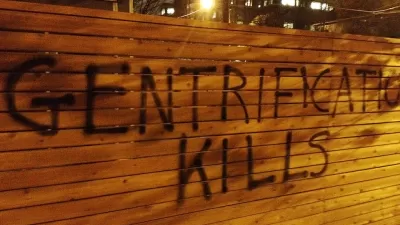
Study Finds Evidence of 'Nationwide Gentrification'
A new study finds that economic inequality is a national problem, evidenced by the access of college educated residents to quality of life indicators in cities all over the country—not just San Francisco, New York, and Boston.
How the Gentrification Narrative Gets it Wrong
A writer points to surprising statistics about Brooklyn—mainly that much of the borough is growing poorer as real estate prices fall—to make a point about how the common gentrification narrative fails cities.
Pagination
Urban Design for Planners 1: Software Tools
This six-course series explores essential urban design concepts using open source software and equips planners with the tools they need to participate fully in the urban design process.
Planning for Universal Design
Learn the tools for implementing Universal Design in planning regulations.
Caltrans
Smith Gee Studio
Institute for Housing and Urban Development Studies (IHS)
City of Grandview
Harvard GSD Executive Education
Toledo-Lucas County Plan Commissions
Salt Lake City
NYU Wagner Graduate School of Public Service


































